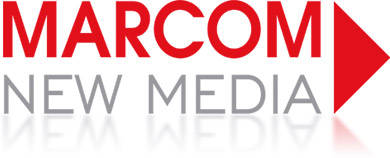 e of 2008 global ad spending. Television comes in at 37.6 percent and magazines at only 11.6 percent. It’s no wonder that all my magazines now fit in the mailbox – their pages keep getting thinner. But then we have known this for quite some time as more and more people adapt to getting their news from the Internet. In fact analysts have predicted that it will take another ten years before the medium is well established.
e of 2008 global ad spending. Television comes in at 37.6 percent and magazines at only 11.6 percent. It’s no wonder that all my magazines now fit in the mailbox – their pages keep getting thinner. But then we have known this for quite some time as more and more people adapt to getting their news from the Internet. In fact analysts have predicted that it will take another ten years before the medium is well established.I still prefer reading the hard copy of the Wall Street Journal every morning. Speaking of which, today there was a long feature article on the front page of the Wall Street Journal regarding Google’s push to sell ads on You Tube, the place online where they claim people watch videos more than one billion times a day.
Historically, it was 2002 when Google revamped its sales model for search ads – when a Google user searches for something online, ads related to the search words pop up next to the results. Right now Google makes most of its money via the text ads that are part of online searches. That means if you are looking for the latest trends in education, these ads come up in the results page -- the ones in the middle are called “organic” listings, while those in the grey blue boxes along the top and the sides are Google text ads. But the company wants to expand its video ads and claim the other 89.8 percent of the global ad dollars that are not currently being spent on the Internet – meaning video and display advertising. After all that is why Google bought You Tube in 2006.
Just imagine – some day when you go online you’ll get all the same stuff we get today. Television commercials at the beginning, middle and end of people’s personal You Tube videos – maybe display ads on blog posts – and billboards will be everywhere along the Internet highway.Google refers to the video spots as "preroll" and "postroll" ads, which could run before and after video clips, and companies that post video clips would get the option to sell these ads, and share the revenue with Google. Advertisers consider them very effective.I don’t mean to sound sarcastic, because after all this is our business here at MarCom New Media.
But if you read the WSJ article, you’ll see how things have been slowed down much like the entertainment industry strikes – thanks to copyright litigation, which has made the YouTube advertising push more complex. This is great news for us because it gives us a chance to digest strategies for our clients for Internet advertising. I love all the food related projects code names the company came up with for all of their latest initiatives –“Project Spaghetti” which is designed to help untangle the challenges with its advertising operations, which was 98 percent of Google's Q1 revenue. As always, people in high tech are always thinking about food.
Google also recently acquired DoubleClick Inc., to ramp up their display ads revenue, but that has not done too well. The company is known for inserting ads onto Web sites in addition to offering a way for ad agencies to manage and track online ads. They say these display ads are only generating a few hundred million right now.
We have one client called The Entertainment Career Connection that provides educational apprentice programs for the film, radio, television and the music recording industries. EC has mentor programs in more than 100 U.S. cities in all fifty states. After Mike Keesling, our SEO expert did SEO for three of their websites, we are now focusing on branding, public relations and social media marketing, in addition to their PPC campaign, he began to manage their Pay per Click (PPC) campaign. It was at around $29k per month.In less than one year we reduced the Entertainment Career Connection’s PPC budget from $29k per month to $9k per month. After six months of a carefully planned and executed reduction of the PPC budget, PPC media was at $11k, and after the SEO campaigns kicked in, plus after re-skinning the websites, we reduced the PPC campaign to $9k in about a year, while increasing SEO and social media marketing campaigns. We like the SEO technology environment better than PPC because it costs less than the ads.
Here’s the kicker -- for one third the budget they are getting 170 percent of the business, as we have decreased Entertainment Connection’s original PPC budget by 67 percent of what it was, and increased the number of leads by 67 percent. Their websites is getting excellent rankings for the keywords including: The Recording Connection, The Film-Connection and Radio Connection.
In the end, it will be up to the consumers to drive successful advertising online. I got an email this morning on my blog from a guy who really liked one of my old blog posts, "Consumers Define Social Media Marketing." Check it out and let me know what you think.


No comments:
Post a Comment